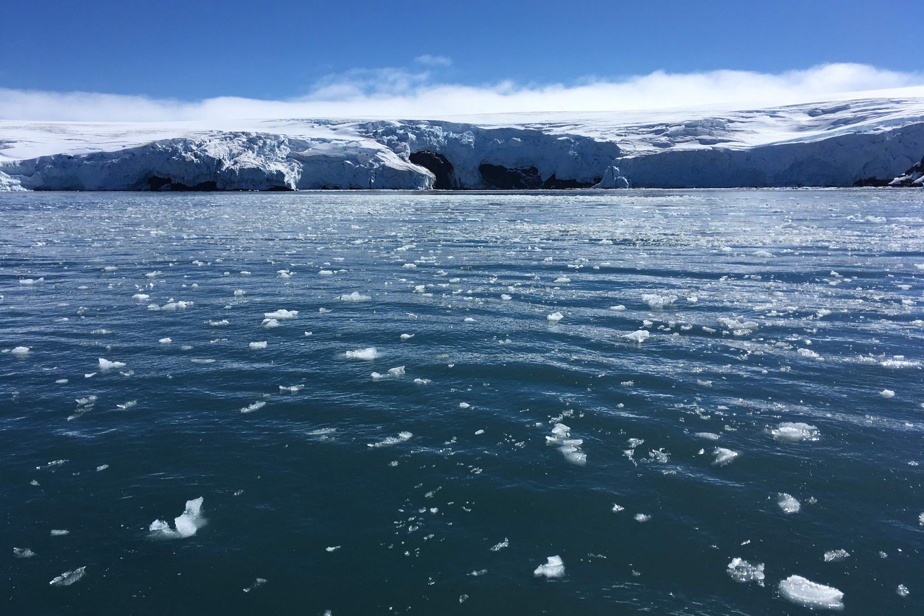(Sydney) Rapid melting of Antarctic ice threatens to dramatically slow deep-water currents in the oceans, limiting the spread of fresh water, oxygen and nutrients for centuries, a study has found. in the journal Nature.
Accelerating Antarctic ice melt is likely to lead to a “substantial slowdown” in deep-ocean water circulation if global carbon emissions remain elevated, according to new modelling. researchers said in a study published Wednesday.
The “reversal circulation” of waters in the deep oceans would slow by 40% by 2050 under a high emissions scenario, according to the study, which warns of impacts that would last “for centuries”.
If the model holds true, the deep ocean current will be “on a trajectory that appears to be heading towards collapse”, said Matthew England, professor of climatology at the University of New South Wales (UNSW), who coordinated the ‘study.
According to this study, trillions of tons of cold, very salty, oxygen-rich water flow around Antarctica each year, sending a deep water current northward into the Indian, Pacific and Atlantic oceans.
However, greater volumes of melting ice are making Antarctic waters less dense and less salty, slowing deep water circulation and affecting climate, sea levels and marine ecosystems.
“If the oceans had lungs, this would be one of them,” Mr. England said.
And if the oceans stagnate below 4,000 meters, “nutrients will be trapped in deep waters, reducing the amount of nutrients available to marine life near the ocean surface,” he added.
John Church, professor emeritus at UNSW, who was not involved in the study, said there were many uncertainties about the impact of a decrease in deep ocean circulation.
“But it seems almost certain that maintaining high levels of greenhouse gas emissions will have even more profound effects on the ocean and the climate system,” Church said.
“There is an urgent need for the world to drastically reduce emissions to get out of the high emissions path we are currently following.

